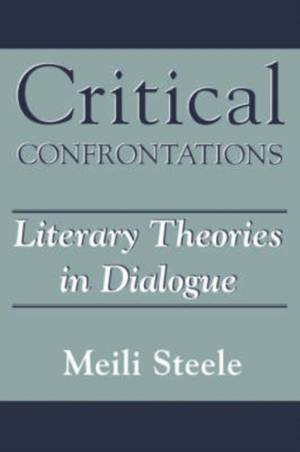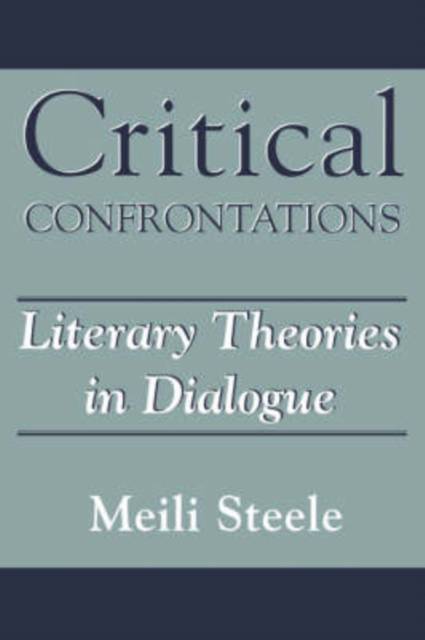
- Afhalen na 1 uur in een winkel met voorraad
- Gratis thuislevering in België vanaf € 30
- Ruim aanbod met 7 miljoen producten
- Afhalen na 1 uur in een winkel met voorraad
- Gratis thuislevering in België vanaf € 30
- Ruim aanbod met 7 miljoen producten
Omschrijving
Joins heretofore separate realms to provide a new, more cohesive story of critical theory
Critical Confrontations extends beyond the encyclopedia-like treatment found in most introductory volumes to broaden the interpretive landscape of critical theory and increase its usefulness. Contending that the dominant paradigms of contemporary critical theory eclipse rather than enable the analysis of gender, race, and difference that lies at the heart of today's cultural reflection, Meili Steele marshals the resources needed to draw tradition-based views of language and anti-humanistic theories from their abstract frameworks into the more tangible field of cultural studies.
Beginning with the debate between New Criticism and historical intentionalism, Steele charts a course through hermeneutics, dialogue, explanation, interpretation, poststructuralism, feminism, democracy, and the antinomies of exile and rootedness. He pairs comparable theorists and reviews the interpretive lenses they employ, highlighting the strengths and weaknesses of each theorist and text. Weaving a progressive narrative in which each chapter builds upon the preceding, Steele enables the reader to work through a developing dialogue rather than a list of theories. He also illumines the ways in which seemingly disparate theories can interact to address the questions that face teachers and students of literature, cultural studies, and philosophy.
Steele renders perceptive analyses of contemporary theory's major thinkers, including Seyla Benhabib, Hans-Georg Gadamer, Julia Kristeva, Jacques Derrida, Michel Foucault, Jean-François Lyotard, Jessica Benjamin, Judith Butler, Mikhail Bakhtin, Jürgen Habermas, Cornel West, and Edward Said. He also considers the work of such important contemporary writers as Marie Cardinal, Toni Morrison, Ralph Ellison, and Susan Glaspell.
Specificaties
Betrokkenen
- Auteur(s):
- Uitgeverij:
Inhoud
- Aantal bladzijden:
- 152
- Taal:
- Engels
Eigenschappen
- Productcode (EAN):
- 9781570031618
- Verschijningsdatum:
- 1/09/1997
- Uitvoering:
- Paperback
- Formaat:
- Trade paperback (VS)
- Afmetingen:
- 152 mm x 227 mm
- Gewicht:
- 276 g

Alleen bij Standaard Boekhandel
Beoordelingen
We publiceren alleen reviews die voldoen aan de voorwaarden voor reviews. Bekijk onze voorwaarden voor reviews.









